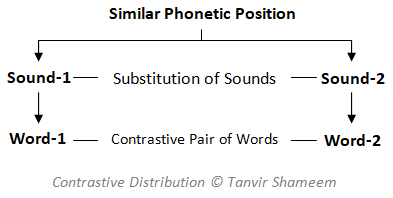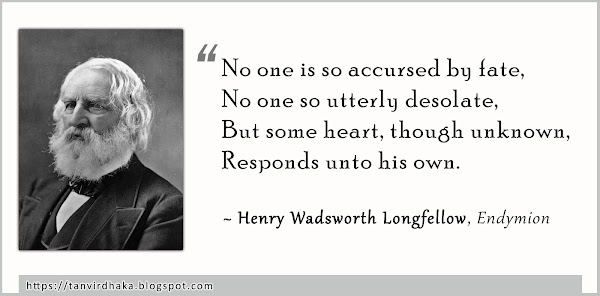FRANZ KAFKA (1883 –1924), ONE OF THE SIGNIFICANT AUSTRIAN (CZECH) JEWISH NOVELISTS AND SHORT STORY WRITERS OF THE 20TH-CENTURY MODERN WORLD LITERATURE.
“Logic may indeed be unshakeable, but it cannot withstand a man who is determined to live.”
~ Franz Kafka, The Trial
“I’m tired, can’t think of anything and want only to lay my face in your lap, feel your hand on my head and remain like that through all eternity.”
~ Franz Kafka, Letters to Milena
“This tremendous world I have inside of me. How to free myself, and this world, without tearing myself to pieces. And rather tear myself to a thousand pieces than be buried with this world within me.”
~ Franz Kafka, Diaries, 1910-1923
“I have spent all my life resisting the desire to end it.”
~ Franz Kafka, Letters to Milena
“I dream of a grave, deep and narrow, where we could clasp each other in our arms as with clamps, and I would hide my face in you and you would hide your face in me, and nobody would ever see us any more”
~ Franz Kafka, The Castle
“It's only because of their stupidity that they're able to be so sure of themselves.”
~ Franz Kafka, The Trial
“You are at once both the quiet and the confusion of my heart; imagine my heartbeat when you are in this state.”
~ Franz Kafka, Letters to Felice
“I cannot make you understand. I cannot make anyone understand what is happening inside me. I cannot even explain it to myself.”
~ Franz Kafka, The Metamorphosis
“It would have been so pointless to kill himself that, even if he had wanted to, the pointlessness would have made him unable.”
~ Franz Kafka, The Trial
“Life's splendor forever lies in wait about each one of us in all its fullness, but veiled from view, deep down, invisible, far off. It is there, though, not hostile, not reluctant, not deaf. If you summon it by the right word, by its right name, it will come.”
~ Franz Kafka, Diaries, 1910 1923
“Should I be grateful or should I curse the fact that despite all misfortune I can still feel love, an unearthly love but still for earthly objects.”
~ Franz Kafka, Diaries, 1910-1923
“Being alone has a power over me that never fails. My interior dissolves (for the time being only superficially) and is ready to release what lies deeper. When I am willfully alone, a slight ordering of my interior begins to take place and I need nothing more.”
~ Franz Kafka, Diaries, 1910-1923
“Forget everything. Open the windows. Clear the room. The wind blows through it. You see only its emptiness, you search in every corner and don’t find yourself.”
~ Franz Kafka, Diaries, 1910-1923
“Nor is it perhaps really love when I say that for me you are the most beloved; In this love you are like a knife, with which I explore myself.”
~ Franz Kafka, Letters to Milena
“Everything you love will probably be lost, but in the end, love will return in another way.”
~ Franz Kafka, Kafka's Selected Stories
“My condition is not unhappiness, but it is also not happiness, not indifference, not weakness, not fatigue, not another interest – so what is it then?”
~ Franz Kafka, Diaries, 1910-1923
“I can’t feel a thing; All mournful petal storms are dancing inside the very private spring of my head.”
~ Franz Kafka, Letters to Milena
“It seems to be a fact that man, tortured by his demons, avenges himself blindly on his fellow-man.”
~ Franz Kafka, Letters to Milena
“You must not pay too much attention to opinions. The written word is unalterable, and opinions are often only an expression of despair.”
~ Franz Kafka, The Trial
“If a man has his eyes bound, you can encourage him as much as you like to stare through the bandage, but he'll never see anything.”
~ Franz Kafka, The Castle
“Since I met you, I've felt abandoned without your nearness; your nearness is all I ever dream of, the only thing.”
~ Franz Kafka, The Castle
“I'm on such a dangerous road, Milena. You're standing firmly near a tree, young, beautiful, your eyes subduing with their radiance the suffering world.”
~ Franz Kafka, Letters to Milena
“The door could not be heard slamming; they had probably left it open, as is the custom in homes where a great misfortune has occurred.”
~ Franz Kafka, The Metamorphosis
“The man in ecstasy and the man drowning—both throw up their arms.”
~ Franz Kafka, Blue Octavo Notebooks
“Don't despair, not even over the fact that you don't despair. Just when everything seems over with, new forces come marching up, and precisely that means that you are alive. And if they don't, then everything is over with here, once and for all.”
~ Franz Kafka, Diaries, 1910-1923
“There can be no more beautiful spot to die in, no spot more worthy of total despair, than one’s own novel.”
~ Franz Kafka, Diaries, 1910-1923
“Illusions are more common than changes in fortune”
~ Franz Kafka, The Castle
“They did not know what we can now sense as we contemplate the course of history: that change begins in the soul before it shows in our lives...”
~ Franz Kafka, The Great Wall of China
“It's sometimes quite astonishing that a single, average life is enough to encompass so much that it's at all possible ever to have any success in one's work here.”
~ Franz Kafka, The Trial


![“Sorrow comes in great waves—no one can know that better than you—but it rolls over us, and though it may almost smother us it leaves us on the spot, and we know that if it is strong we are stronger, inasmuch as it passes and we remain. It wears us, uses us, but we wear it and use it in return; and it is blind, whereas we after a manner see.” ~ Henry James, Letter to Grace Norton [July 28,1883] “Sorrow comes in great waves—no one can know that better than you—but it rolls over us, and though it may almost smother us it leaves us on the spot, and we know that if it is strong we are stronger, inasmuch as it passes and we remain. It wears us, uses us, but we wear it and use it in return; and it is blind, whereas we after a manner see.” ~ Henry James, Letter to Grace Norton [July 28,1883]](https://blogger.googleusercontent.com/img/b/R29vZ2xl/AVvXsEgz3kuW3iRbnP90MBRV9T-VDIURSf_4b2JPq-qeMPPGCx37ltqP_oNbQLKg7tYSo5pZ6WAoaCAKwGtHDRyqqlWEkOQpftrHWfH3wH6-lm3z7anwCwRRr3JOkup2cIOmWQ75Wnydc_OqtRWrdh3IhA4n7FSopwZXx3zGysWn4pTpiFkbUUPguLMG6PWb/w640-h316/henry-james-quotes.jpg)











